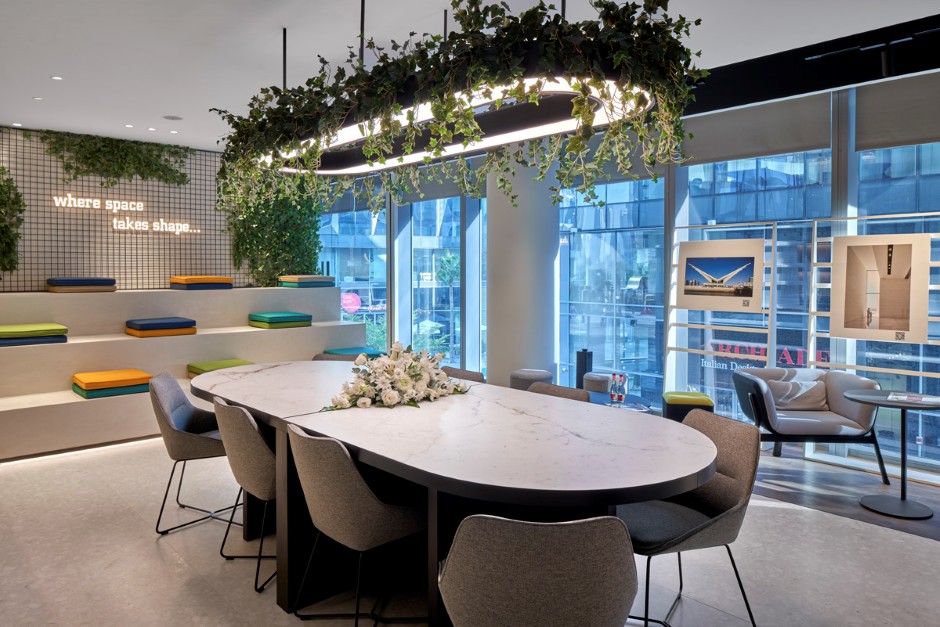Pinnacle of success

Studio Lumen has demonstrated its skill in blending functionality with aesthetics in the lighting design for Pinnacle Interiors’ new head office in the Dubai design district.
The design represents a seamless fusion of innovation and craftsmanship, elevating the workplace environment with a focus on employee wellbeing, operational efficiency and sustainability.
The lighting design for the space embraces a modern, sleek aesthetic, harmonising perfectly with the contemporary style of the office. Studio Lumen’s approach emphasises minimalist fixtures such as recessed lighting, elegant pendant lights and integrated LED strips, creating a clean, uncluttered look while ensuring optimal illumination throughout the workspace.
At the core of the design lies a commitment to functionality. The office was designed as a vibrant and adaptable environment, with tailored lighting solutions for various functional zones. Workstations benefit from focused task lighting that enhances concentration, while softer ambient lighting creates a calming atmosphere in relaxation and break areas. Meeting rooms are equipped with versatile lighting setups that can easily transition from presentations to informal discussions, ensuring flexibility for any scenario.
The use of energy efficient LEDs and smart controls underlines the office’s commitment to sustainability, lowering energy consumption and operational costs while maintaining a high standard of lighting quality.







